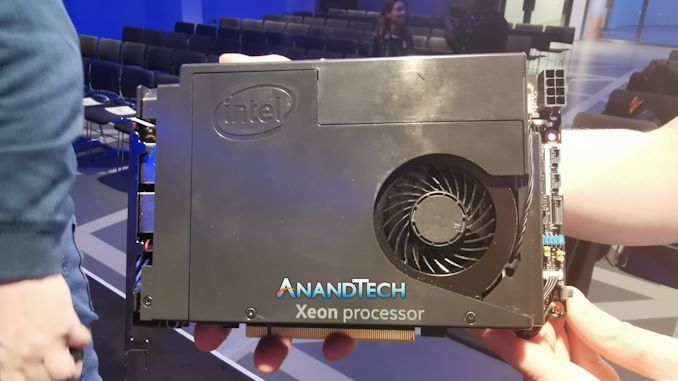Intel have showcased a new product, codenamed "Element", which combines PCIe cards to form a fully modular PC. This means a computer in the future could consist of a simple backplane with lots of PCIe slots, in to which different processing modules could be plugged in. For example, you may need an Intel Element CPU module (also containing memory modules) and then a selection of GPU, RAID and custom FPGA cards. This bypasses the need for a traditional motherboard and gives improved upgrade options when hardware requirements change.
It's likely that this sort of configuration would be used in data centres and systems with very high-end computing requirements. No doubt a similar configuration could be used for consumer level systems, but at the moment there isn't much advantage to this setup. It's likely consumer hardware will shrink in size and power, rather than take on this more modular approach.
AnandTech have a wide selection of photos and press information from the launch event:

 www.anandtech.com
www.anandtech.com
OEMs will only have to wait until Q1 2020 to get their hands on Element, so expect more news in the coming months.
It's likely that this sort of configuration would be used in data centres and systems with very high-end computing requirements. No doubt a similar configuration could be used for consumer level systems, but at the moment there isn't much advantage to this setup. It's likely consumer hardware will shrink in size and power, rather than take on this more modular approach.
AnandTech have a wide selection of photos and press information from the launch event:

The Modular PC: Intel’s new Element brings Project Christine to Life
OEMs will only have to wait until Q1 2020 to get their hands on Element, so expect more news in the coming months.
